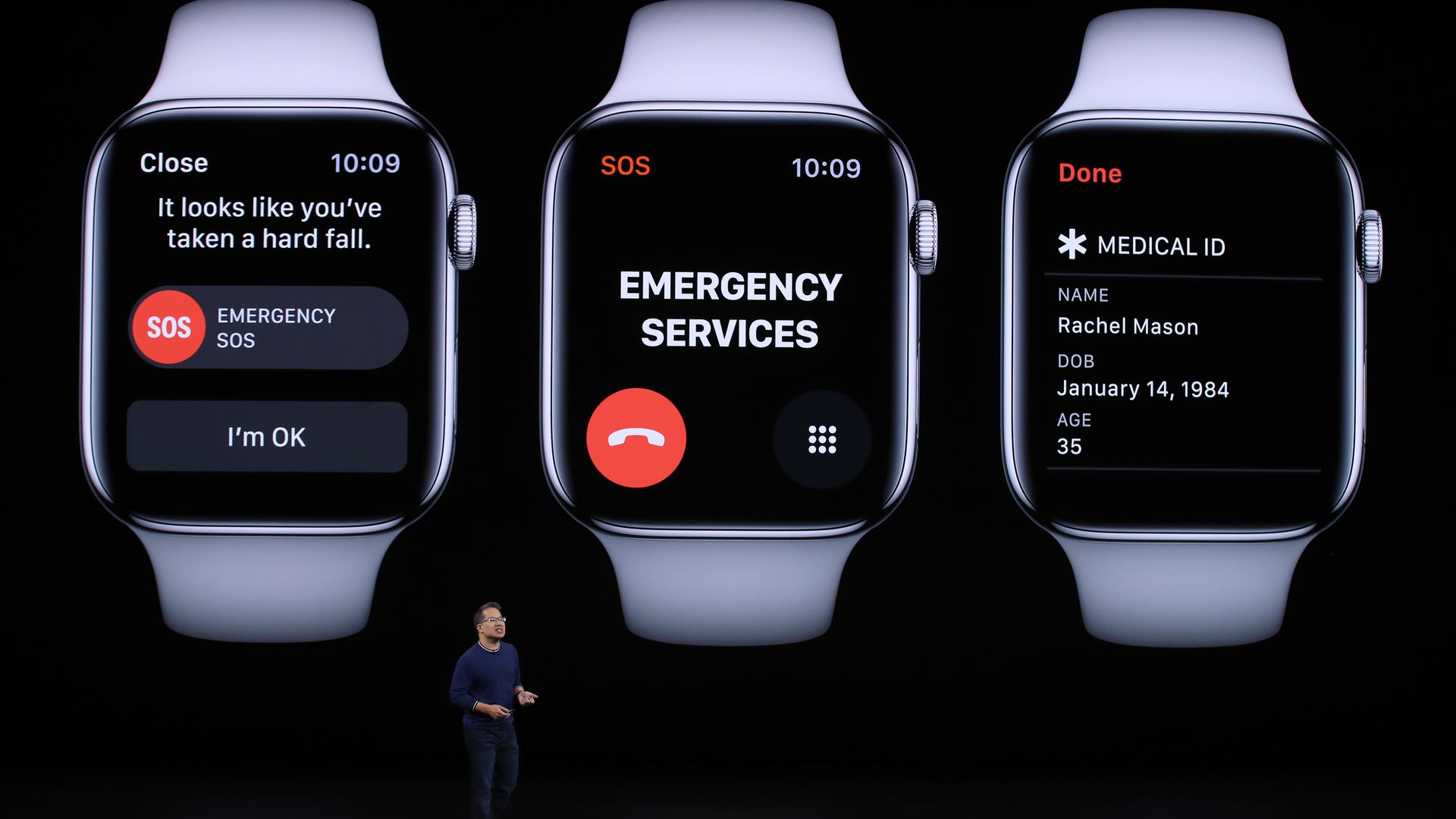Tech giants reach further into health care
Add Axios as your preferred source to
see more of our stories on Google.

Photo: Justin Sullivan/Getty
Big Tech, already under a withering spotlight from Congress for mishandling some user data, is elbowing further into health care — a world defined by its privacy pitfalls.
Why it matters: Giant companies have earned regulatory wrist-slaps for fumbling sensitive personal information, but the stakes are much higher for poorly protected health data.
What's happening: Recent moves, some unfolding in secret, show the reach of the companies' ambition — and, in some cases, their lack of preparation for the minefields.
- Last week, the WSJ broke news of an agreement between Google and Ascension, the second-largest health care system in the country, that gave Google access to data from 50 million patients without informing them. The government is investigating the system's privacy protections.
- On Friday, WaPo reported that Google had pulled the plug on a project with the National Institutes of Health in 2017 when NIH warned that the 100,000 X-ray images it was about to publish could identify the patients.
- Apple, which has put health at the center of its products, announced three new research studies for Apple Watch owners — one of which aims to enroll a million women, monitoring them as they go about their daily lives. Doctors say it's still unclear how useful these large-scale studies are.
The big picture: Med tech is a hugely lucrative and fast-growing field, but it's been plagued by setbacks driven in part by a mismatch between can-do engineers and a more deliberate clinical culture.
The bottom line, from Axios' Caitlin Owens: "These companies are entering the health care world because it's clearly a profit bonanza and they want a piece of that money pie."
Go deeper: Americans have big hopes that Big Tech can improve health care
